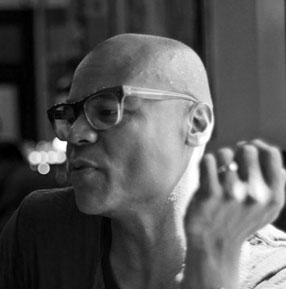71. Realizing Lucy
At the top of the hill, before the light gives way to the pine
that fractures across the sky,
and the farmhouse, opens its door to shadow, there is a
signal.
It is not the dead bird, lying out flat and face down in the
middle of the street, its brown
belly on the pavement, cooled by the wind.
It is not in my chest, which opens up into sections as I
breathe in the air that almost
shocks me into falling face down as I climb the hill.
It is not the breath. It is not the sky, which I haven’t looked
at, staring up at the
mountains, which spreads down through the range up the
curve.
It is not my knee, which seems at any moment will collapse
into if nothing else,
the breaking beneath my legs, the final moment I push up,
towards the end of the light.
There are shadows which cover the sign: SUN, painted in
blue at the peak of the hill.
So, where, today, will I direct my anger?
Where will I turn, running past the women, who hover up
the road, no cars,
crawling into their beers in the middle of the day?
Fat and White. I refuse to grow any fatter, or to not tan.
This summer,
I burn off another self, sprinting up the high hill of my own
making,
burning Kcals toward the peak of my own release. In this
face, “What a view?”—
someone asking another. Was I supposed to seek
something else into which to slip?
Copyright © 2016 Ronaldo V. Wilson. Used with permission of the author.
“‘71. Realizing Lucy’ is part of a series of seventy-two persona poems from my forthcoming collection, Lucy 72, unveiling race as slippery vantage points: thin white woman / fat brown man, or plain girl / bulky boy, flash of light, rocks, streams, running, simmering, retreating. When I started this book in 2003, I took my cue from a number of works, including Cornelius Eady’s Brutal Imagination, its animation of the figure of the imagined black man born to the murderess Susan Smith; Ralph Ellison’s Invisible Man, its depiction of the racialized flow between the protagonist and Norton, somewhere between A black amorphous thing and a force; and Adrian Piper’s The Mythic Being series, its conceptual polyvalent self as meditation / grid / ritual / analysis—after these, my Lucy, here, floats somewhere between subjectivity, desire, and being.”
—Ronaldo V. Wilson

